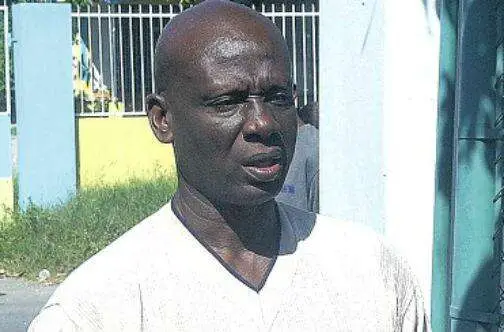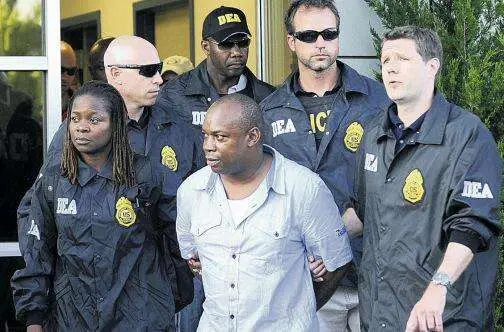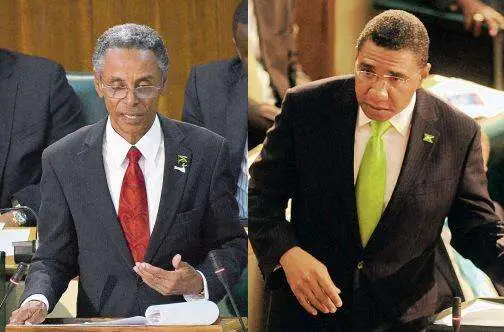
Tivoli enquiry must not be another case of political theatre
TO no one’s surprise, the Commission of Enquiry into the Western Kingston incursion of May 2010 got mired in political controversy within hours of its establishment and months before it is scheduled to actually begin inquiring into those tragic events that shook the country to its core.
Member of parliament for the West Kingston constituency, Desmond McKenzie, wants the governor general to rescind his appointment of Velma Hylton QC, as a commissioner, because of what he regards as bias arising from comments she made at a 2002 inquiry into an earlier violent confrontation between the security forces and people in the same volatile community.
Mr McKenzie has threatened to seek unspecified international redress if he does not get a satisfactory response from Governor General Sir Patrick Allen.
Attorney General Patrick Atkinson, speaking on Impact with Cliff Hughes Thursday night, stoutly defended the appointment of the veteran attorney, insisting there was “no basis to challenge the fairness, integrity or competence” of Ms Hylton.
Absent other leadership voices, it was not immediately clear how much of the Opposition Jamaica Labour Party (JLP) stood behind the West Kingston MP; but Senator Alexander Williams, the Opposition spokesman on justice, asserted that Mr McKenzie was speaking for the party on the issue.
The controversy arose as news came last week that the governor general, on the advice of Prime Minister Portia Simpson Miller, had appointed a three-member commission to be chaired by the eminent Barbadian jurist and former member of parliament Sir David Simmons, who has also served as his country’s attorney general and chief justice.
The other commissioners are: retired judge of the Court of Appeal Hazel Harris, who acted as the president of that Court, and Ms Hylton, a former deputy director of public prosecutions in Jamaica and currently private practitioner as an attorney-at-law.
On the face of it, the trio seem eminently qualified to take on the task. The broader public interest issue is whether they will be able to cut through the wide terms of reference as well as the historical tendency to reduce similar enquiries into games for political point scoring.
An enquiry can only be regarded as valuable if it causes positive change to the situation that led to the need for the enquiry in the first place.
The controversy over Ms Hylton’s appointment cannot be separated from the fact that West Kingston in general, and Tivoli Gardens in particular, has been unlike any other place in the Jamaican political landscape.
Created by then member of parliament Edward Seaga in the 1960s out of the squalor and abject poverty of Back-o-Wall and Dungle, Tivoli Gardens achieved some of the promise of a model community with worthy achievements in the creative and performing arts, public health and sports.
But it also became a zone of political exclusion and, in the words of former Police Commissioner Rear Admiral Hardley Lewin, “the mother of all garrisons”. It was never policed like other places, but was the scene of occasional confrontations with the security forces during periodic raids said to be in search of guns and the hard men of violence.
Ms Hylton was the counsel for a commission which probed the 2001 confrontation between a police team led by former Senior Superintendent of Police Reneto Adams and residents of Tivoli Gardens, which left 27 persons dead.
The comments that angered Mr McKenzie and Senator Williams were made when Ms Hylton offered the view that it would not be wrong for police officers, under fire from gunmen using women and children as human shields, to return the fire.
Lawyers consistently interpret evidence in the best interest of their client and Ms Hylton was doing just that.
Given the history and the politics of the situation, it is not surprising that the JLP would claim bias. And the Government could have named someone who was not a lightning rod. By naming her, the Government has given the Opposition cover and distraction from its more fundamental problem with the enquiry.
From the very beginning, the JLP did not support a Commission of Enquiry, with party leader Andrew Holness favouring coroner’s inquests into the deaths of the 70-odd persons killed and payment of compensation to those injured or who suffered property damage.
Supporting an enquiry would also mean the JLP taking some ownership for a process that is certain to cause embarrassment to the party which, as Government of the day, authorised a massive security operation that effectively exposed the impregnable JLP stronghold of Tivoli as the underbelly of criminal organisation exercising virtual state authority.
But seeming to oppose it would suggest insufficient care for the greatest loss of civilian lives at the hands of the State in any incident since the Morant Bay Rebellion.
The ambivalence may explain why former Opposition spokesman on justice Delroy Chuck declined to offer any suggestions back in May 2013 when the Opposition was invited to come up with ideas on the terms of reference or persons to sit on the commission.
And, according to Attorney General Atkinson, Prime Minister Simpson Miller wrote to Opposition Leader Andrew Holness on February 4, 2014, giving the names of the three commissioners and the terms of reference, and requesting him to comment by Friday, February 10, as the matter would be going to Cabinet the following Monday. Again, according to Mr Atkinson, there has been no response.
It’s not clear how the controversy over Ms Hylton will end, but the Government should seriously look at the case for reversing the appointment. This would not be an admission that the remarks disqualified her, but an affirmation that the commission should be given the best opportunity to get the job done.
The country needs to know a lot more about the extent and responsibility for the deaths and destruction in the operations related to the attempt by the security forces to capture former Tivoli strongman Christopher ‘Dudus’ Coke, who was wanted by the US Government.
Among other things, they are to enquire into whether State officials and law enforcement officers came under gunfire during the process; circumstances in which property, including a police station, were burnt; the conduct of the operations by the security forces; allegations that civilians in the area were armed; what arrangements were made and precautions taken to safeguard citizens from unnecessary injury or property damage; the circumstances in which the civilians were killed and private property damaged; whether the rights of citizens were violated in the process; the chain of command in relation to the decisions taken; whether there was direct or indirect communication with Coke by any public official.
That’s a tall order for a Commission that has been asked “to use its best effort” to conclude the enquiry within three months of the start, and provide a report within two months after.
Public Defender Earl Witter, who submitted his own “interim report”, said his investigations suggested that “excessive or undue resort to lethal force” was used by the security forces during the operation. And he was not able to determine how many people actually died in the operation, although he listed 77 deaths, including one soldier. The figure could be higher.
Mr Witter did not have access to ballistics reports and other forensic evidence that would enable him to make more definitive statements about the deaths and shootings that caused injury.
The Simmonds Commission must take us further than where Mr Witter took us. We need to find out who should be held accountable and how Jamaica can be better for the exercise. Anything less would be a huge waste of time and money — even if it’s
good drama.
kcr@cwjamaica.com



























